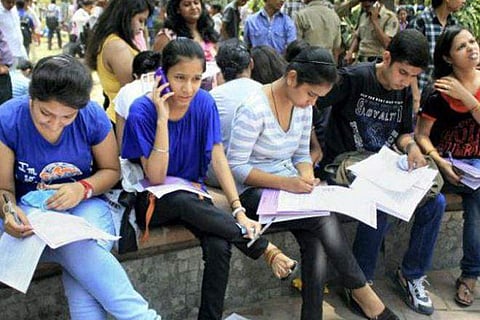

The National Testing Agency declared the JEE (Main) Examination Paper I results on April 29. This was the first time that students could apply under the Economically Backward Section (EWS) quota, cleared by Parliament earlier this year. Out of the 6,08,440 applicants who appeared in the two-phase examination, 43,035 were from the EWS quota — almost equal to the number of ST candidates (43,632).
The examination, conducted in 470 centres in 267 cities including 09 outside India, saw 33,377 male and 9,658 applicants in the EWS category. There were only three transgender candidates in total and none from this category. The Centre had introduced a 10 per cent reservation for the poor among upper castes in January this year. The Supreme Court is set to hear the pleas challenging the Centre's decision on May 2.
Cut off for General category was set at 89.7548849 while the EWS students had a cut off of 78.2174869. OBC, SC and ST candidates had to clear cut off of 74.3166557, 54.0128155 and 44.3345172 respectively and People with Disability had a cut off of 0.1137173 for the NTA Score for JEE (Advanced)-2019 based on Paper-I.
IIT Roorkee, which will conduct the Joint Entrance Examination (Advanced) this year, has said that the top 2.45 lakh candidates from the JEE (Main) would be eligible for the JEE (Advanced) this year.
The IITs, earlier this month, had offered, on average, 500 seats to candidates from the economically weaker sections from the 2019-’20 academic year. IIT Madras had said that they will introduce 4 per cent quota for the EWS category this academic year. “This will throw infrastructural challenges, but it is doable,” Director Baskar Ramamurthi told the media. “Classrooms will not be much of a problem but accommodations have to be worked out.” Officials at IIT-Kharagpur also said the college may reserve 3 per cent seats for EWS candidates. However, they added that infrastructure problems will arise when a fresh batch of students would have to be accommodated in the second year of the implementation of the scheme.
